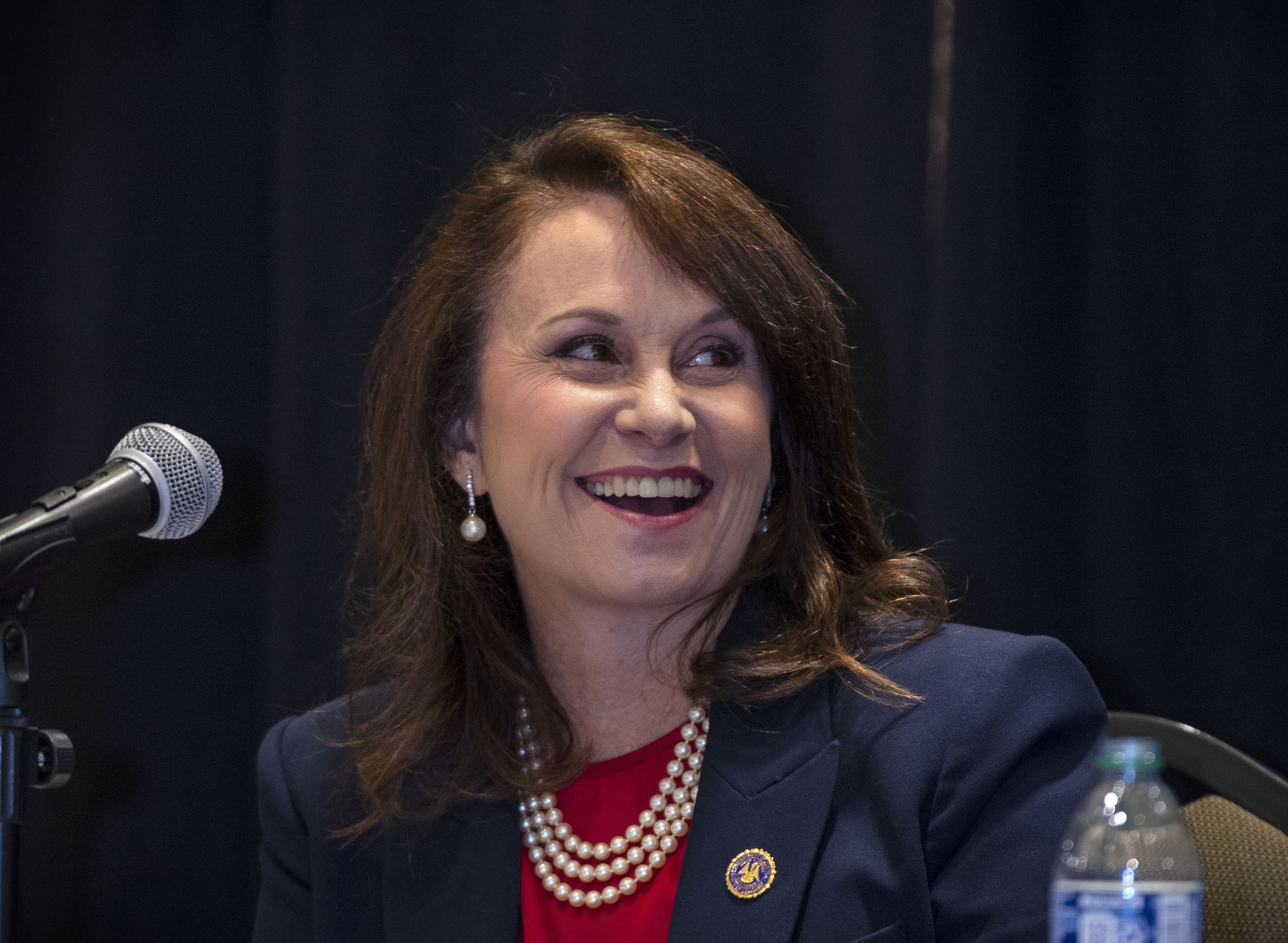Louisiana Attorney General Liz Murrill last week called the cash bonus incentives included in LSU President William F. Tate IV’s recently renegotiated contract “an unconstitutional donation.”
Tate’s employment agreement was renegotiated and unanimously approved by the Board of Supervisors in mid-August. Aside from a raise of $25,000, which pushes his base pay up to $750,000, the contract outlines an additional $650,000 that Tate is entitled to if he completes objectives specified in the contract and a one-time additional $500,000 for completion of his fourth year as university president under the new contract’s terms.
LSU Board of Supervisors Chairman Jimmie Woods Sr. said in a statement on behalf of the board that it is well aware of the heightened pay the president is eligible to receive – one that if completed, nearly doubles what Tate makes by default in a year, totaling his earnings to roughly $1.4 million a year.
The post was made Thursday from the chief legal officer of Louisiana’s personal X (formerly Twitter) account and does not officially reflect the stance of her office or the Department of Justice. Murrill links to a report from the Louisiana Illuminator concluding that the $650,000 in bonuses are within easy reach of the LSU President, based on comparing the contract’s requirements with university data and consulting with officials.
“I’m a two-time LSU grad and I want to see LSU succeed,” Murrill said in a statement to the Reveille. “I support Tate as president and also want him to succeed. My comments are not critical of Tate – he should negotiate as much as he can in compensation. But the board is spending taxpayer funds, and as chief legal officer, it’s clearly part of my job to ensure our institutions comply with the law.”
Murrill said she was not provided a copy of the contract until Friday, a day after making the post, and said she believes the $500,000 to be fair, being tied to his performance.
Murrill continues to question the incentive bonuses, cumulatively an extra $650,000 per year he completes them.
“The ‘incentive’ bonuses are poorly written camouflage for higher base pay,” Murrill said. “This is not unconstitutional, but it does not incentivize improving. To be competitive with other SEC schools, LSU must pay its system president competitive compensation.”
The university should motivate its leadership to promote more than the status quo, Murrill said. She expects the Board of Supervisors to foster meaningful development, setting meaningful benchmarks that advances the school’s interests and improve nationwide rankings.
Woods, the board chairman, said in a statement on behalf of the board that Tate’s incentive payments were chosen in alignment with LSU’s strategic goals in mind: student success, research productivity and fiscal responsibility.
He said the renegotiated contract is more comparable to the base salaries of Tate’s counterparts. He added that it’s also recognized that this is the first time such incentive compensation is being used for the LSU president’s office.
But incentive compensation has been utilized by athletics now for years, he said.
“The President’s base salary was set at $750,000 which is considerably below the median,” Woods said. “The contract then layers a series of incentives, which are valued at $650,000, to increase the total compensation to slightly above the median at $1.4 million.”
Woods said the process of drafting and calculating the incentive pay began in summer 2023 by peer reviewing other institutions wherein it was found that the median total compensation for similar university presidents was $1.28 million a year.
Woods said the board used a precedent set by an opinion from the attorney general’s office decades ago pertaining to incentive compensation “which promise additional but reasonable future compensation for future performance by a public employee which is of a demonstrable public benefit” as one that is “constitutionally permissible.”
“The president is the highest-ranking executive of a multibillion dollar educational and research enterprise,” he said. “It is only natural that the president’s compensation package would evolve to incorporate incentives similar to athletics contracts as well as executives in other markets.”
What Tate’s new contract says about compensation
Tate’s base pay was upped by $25,000 making his base pay $750,000. He’s provided a house on the LSU Lakes and $15,000 annually for vehicle payments.
His contract was renegotiated one year before his original 2021 contract was set to expire. To receive the full incentive compensation of $650,000, he must complete eight objectives.
-
$75,000 for each fiscal year university the meets or exceeds 776 new research grant awards.
-
$75,000 for each academic year the university maintains an 83% retention rate between first to second year for the Baton Rouge campus.
-
$75,000 for each fiscal year wherein the the university system meets or exceeds $150 million in new research grant awards.
-
$100,000 for each fiscal year wherein the the university system meets or exceeds $200 million in new research grant awards.
-
$100,000 for each fiscal year wherein the Baton Rouge campus’ research expenditures exceed $125 million and the whole system exceeds $300 million.
-
$50,000 for each fiscal year in which the university system’s operating revenues exceed the operating costs by 1.5% of the total operating budget.
-
$75,000 for each fiscal year in which the system’s philanthropic fundraising exceeds $50 million.
-
$100,000 for each fiscal year in which the system’s philanthropic fundraising exceeds $75 million.
Upon Tate’s completion of the fourth year of his new contract, he will receive a one-time payment of $500,000.











